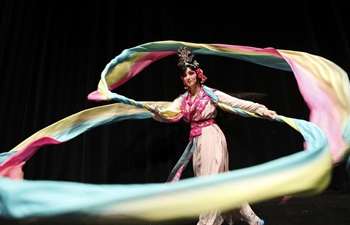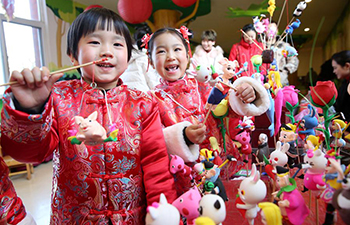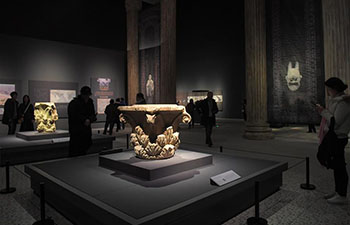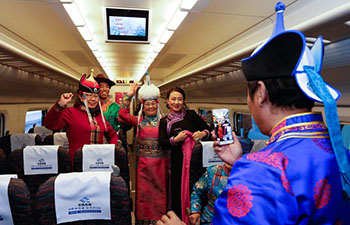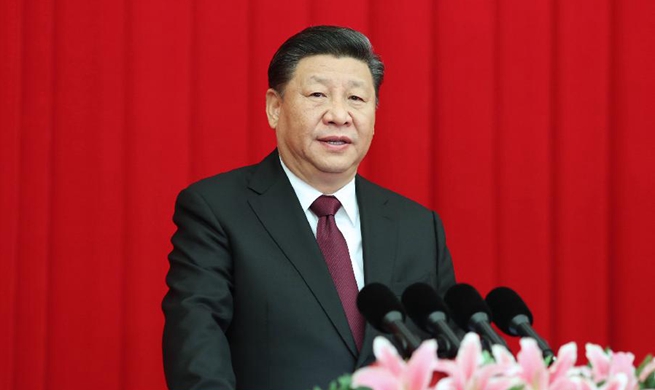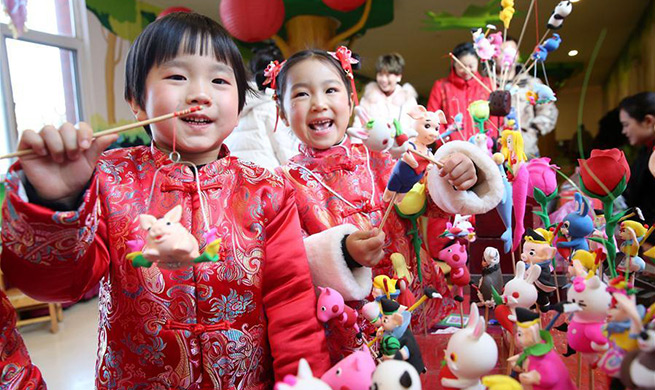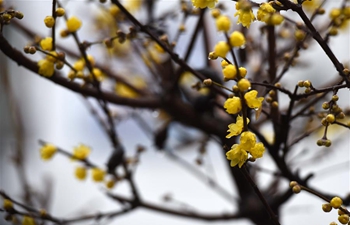by Hazza Harding
SUVA, Dec. 30 (Xinhua) -- Over the years Simon Chen has been trying to bring Chinese tea to the Pacific island country of Fiji. Later he built a business by making tea from the leaves of noni, known locally as the "miracle fruit."
Now the 46-year-old businessman is trying to sell his Chinese-Fijian tea to the fast expanding Chinese market, from which he relocated some 11 years ago.
It is like "return(ing) home," said Chen.
Chen was from Dongguan, a city of some 8 million people in the southern manufacturing hub of Pearl River Delta, which has been a front-runner in China's reform and opening-up over the past decades. He moved to Fiji after he was diagnosed with throat cancer, in the hope that the tropical island nation can win him some extra time, or at least offer him a peaceful ending.
"The doctor told me to get my affairs all arranged. He told me my time was coming to an end," Chen said.
Upon arriving in Fiji, Chen was "by chance" introduced to the fruit with a bitter taste, also known as Morinda citrifolia in Latin. The locals say noni is "a gift from heaven," and asked him to eat the fruit regularly.
He did it, hoping the "miracle fruit" might help. Months later, he was told by doctors that his condition had somehow "improved remarkably."
Regardless of the reason behind his recovery, Chen decided to stay on in Fiji and invest in noni fruit research and development.
His project received support from the Fijian government, which provided him with a warehouse to facilitate the production of tea from the then underutilized fruit.
Six years on, he has become the proud owner of a noni tea company, which utilizes Chinese tea-making techniques to produce tea from the leaves of the noni fruit.
The company is made up of local Fijians and Chinese expats. Chen has adjusted his business practices to suit the local conditions in Fiji, enabling him to attract Fijian employees.
Solomoni Muaniwaqa works on the production line at Chen's tea warehouse, identifying and disposing of unusable leaves for tea making. He said he has worked in many firms and likes his current job.
"I have learned many good things, including time management," Muaniwaqa said.
The company's main product, noni tea, has now also become an official national gift that is presented to visiting dignitaries and leaders from foreign countries.
Chen said that it is a great honor for his product to be recognized in such a manner, and that he also takes pride in spreading the tea culture.
On Nov. 12, China and Fiji signed a Memorandum of Understanding on cooperation within the framework of the Belt and Road Initiative (BRI), opening the door for more cooperation.
In Chen's view, the recent signing of the MoU represents a new opportunity for more trade between the two nations.
Chen said his tea has already "succeeded in entering the local market, and has been popular among tourists from many countries." He is hoping to bring his Chinese-Fijian tea back to the Chinese market.
Chen sees his own success as a beneficiary of the increasing exchanges in a globalized world. In the building of the Belt and Road, more stories like his are yet to come, Chen said.


